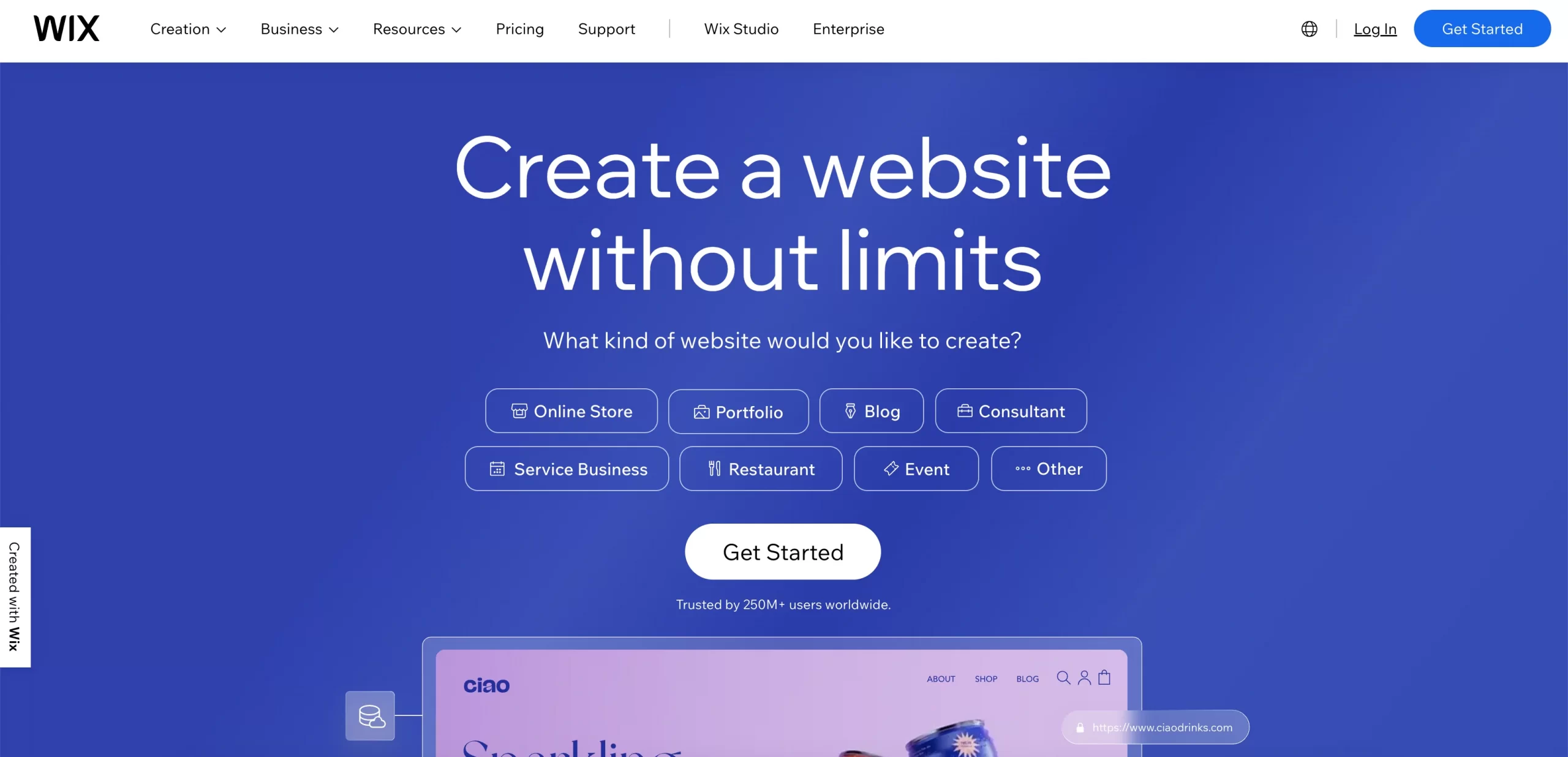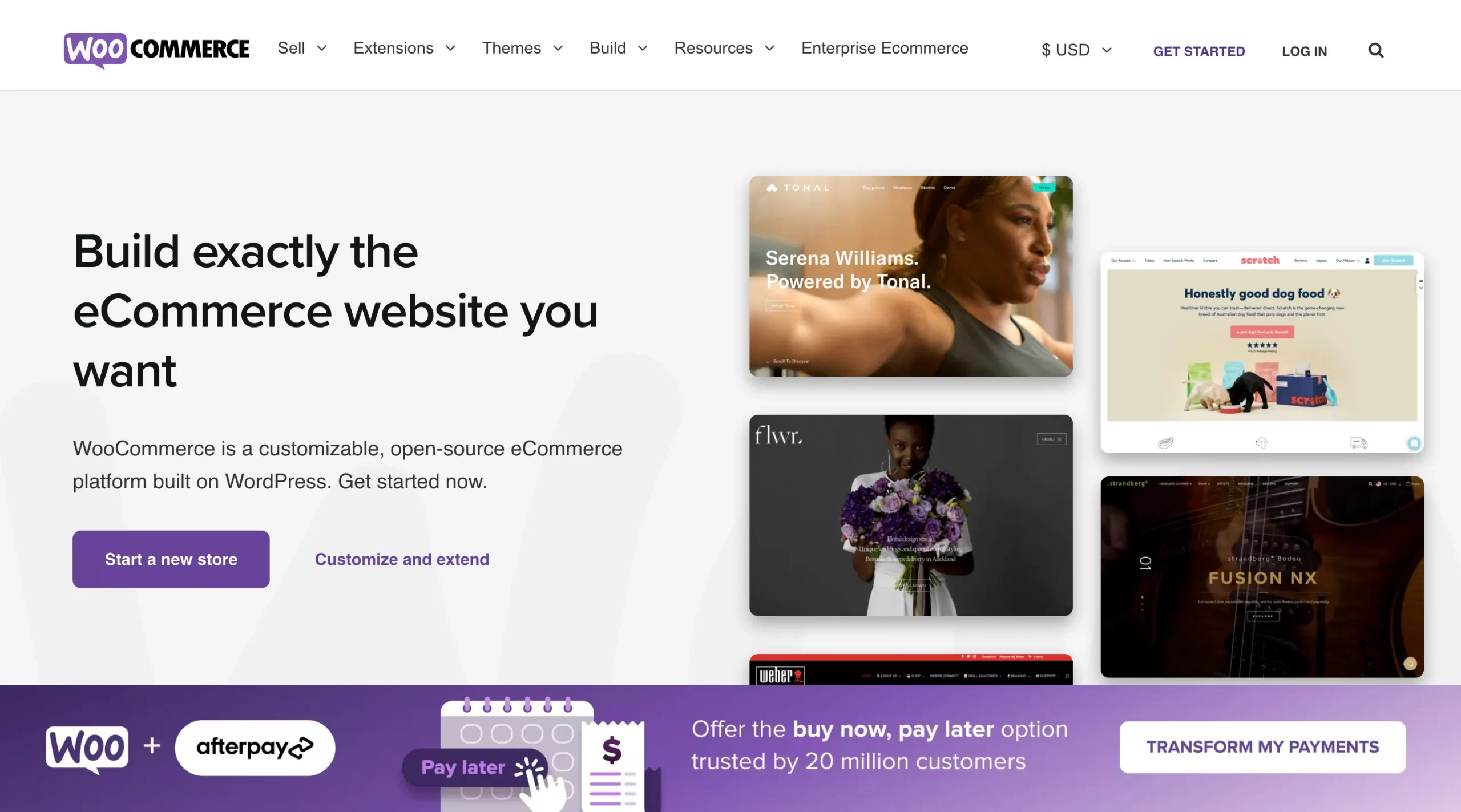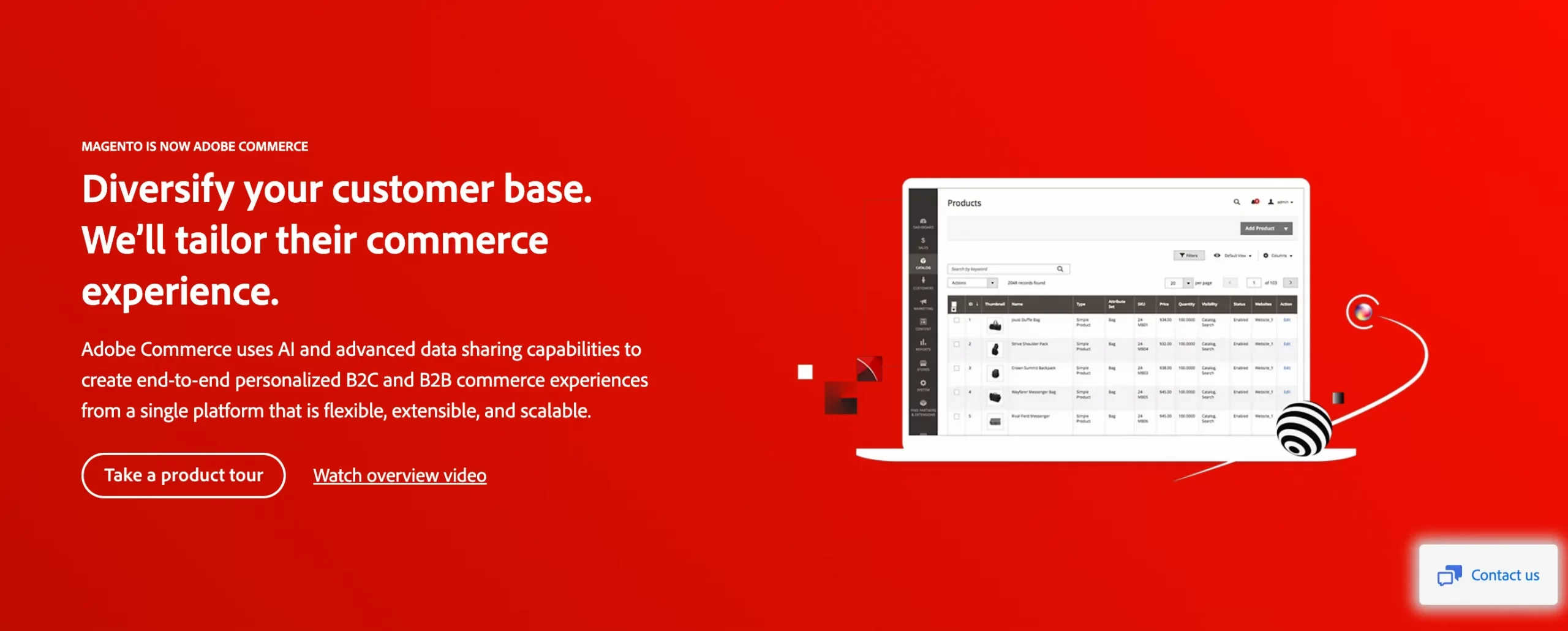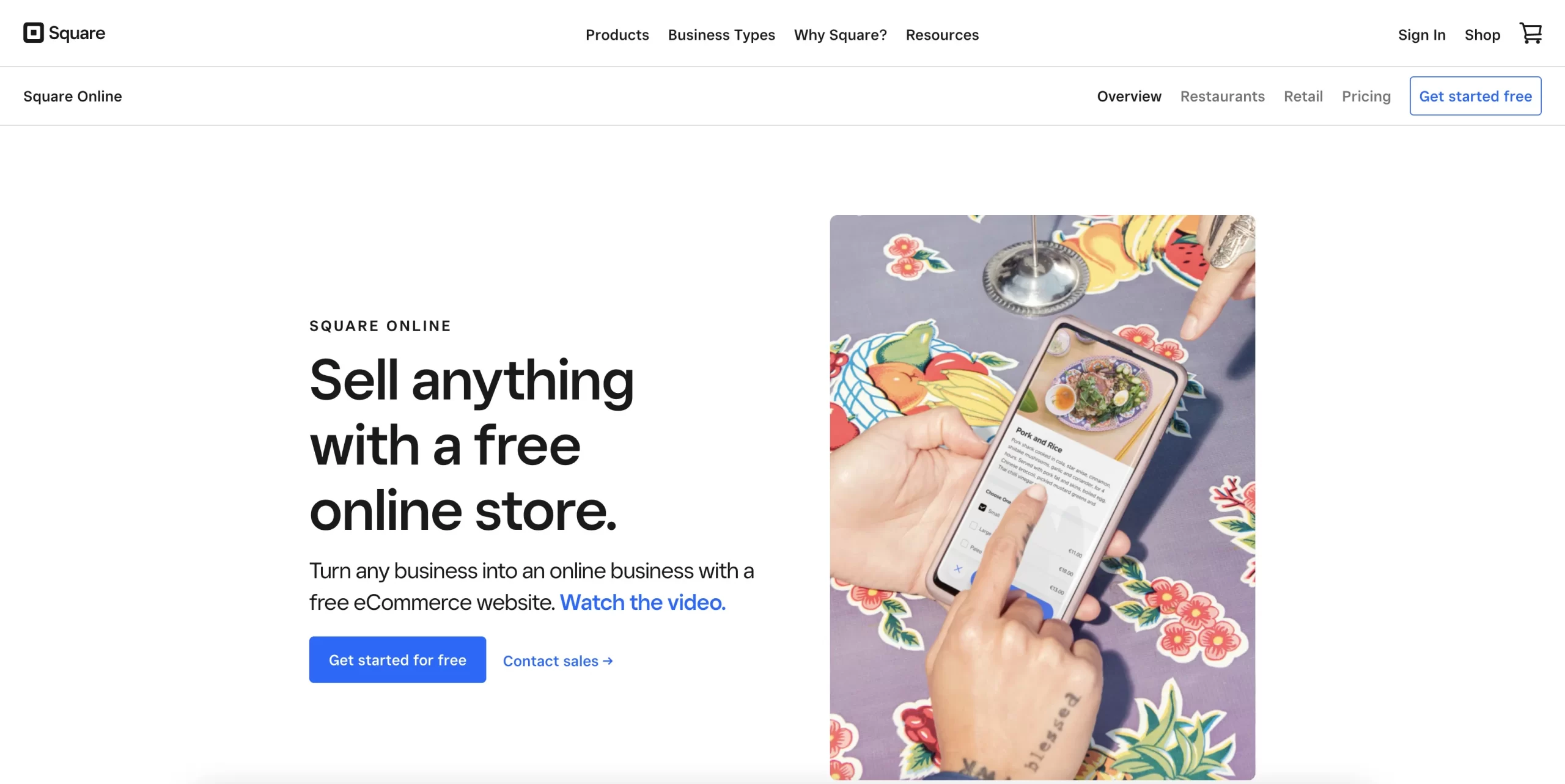Without a doubt, Shopify is currently one of the most prominent eCommerce solutions on the market. However, it's not the only player in the game. While this platform has been a default choice for many businesses, exploring other options is always a good idea. So, whether you're just starting to sell online or looking to switch to a new platform, you might want to look at these Shopify competitors below.
In this article, LitExtension – #1 Shopping Cart Migration Expert will explore some of the top Shopify rivals and how they compare in terms of features, pricing, and other important factors. Here are the key Shopify competitors that we'll take a look at:
- Wix
- BigCommerce
- WooCommerce
- Magento
- Squarespace
- Square Online
- Shift4Shop
- Shopware
- Big Cartel
- Webflow
Read on and find out which platform will be the best fit for your business!
11 Most Popular Shopify Competitors
So, who are Shopify competitors? To help you get a glimpse of how many
Platform | Key features | Best for |
Wix | Drag-and-drop builder, diverse templates, specialized industry tools. | Small to medium-sized businesses, beginners, businesses needing specific industry tools (events, restaurants) |
BigCommerce | Robust features for scaling businesses, advanced SEO, multi-channel selling, strong B2B capabilities | Growing businesses, those needing advanced B2B and multi-channel selling |
WooCommerce | Highly customizable, vast plugin library, open-source flexibility, integrates seamlessly with WordPress | Tech-savvy users, businesses wanting full control and customization, or existing WordPress users |
Magento | Enterprise platform, highly scalable, extensive customization options, powerful eCommerce features | Large enterprises with complex needs, high traffic volumes, businesses requiring extensive customization |
Squarespace | Award-winning templates, intuitive interface, strong blogging features | Creatives, designers, content-focused businesses, those prioritizing aesthetics and user experience |
Square Online | Free plan available (with transaction fees), seamless integration with Square POS, mobile-friendly design | Small businesses looking for an affordable and easy-to-use eCommerce platform. |
Shift4Shop | Free plan for U.S.-based merchants processing $1,000/month via Shift4 Payments; built-in SEO tools; no transaction fees | Budget-conscious startups and small to medium-sized businesses seeking cost-effective solutions |
Shopware | Open-source flexibility, headless architecture, advanced B2B/B2C tools, no-code automation features | Businesses needing scalability and innovation; ideal for both B2C and B2B markets with complex needs |
Big Cartel | Free plan, easy to use dashboard, support for physical, digital, and service-based products selling | Creators, artists, and small-scale sellers who want a clean, easy-to-manage online store |
Webflow | CMS integration for dynamic content and product management, fully customizable cart and checkout experience | Design-focused brands, agencies, and professionals wanting to create visually complex storefronts. |
1. Wix
Best for:
Small to mid-sized businesses, artists, freelancers, and creators who want to quickly build a unique, professional-looking store and have full visual control without technical burden.
Wix users' rating: 4.2/5 on G2
Wix is one of the most beginner-friendly Shopify competitors, offering a powerful mix of website design freedom and essential eCommerce tools. While Shopify is built for scalability and structured growth, Wix shines in simplicity, creative control, and affordability, making it a strong choice for individuals and small businesses looking to get online fast without technical barriers.
With over 8.7 million users globally (according to BuiltWith), Wix has continually improved its eCommerce offering. Its intuitive drag-and-drop editor, wide variety of templates, and built-in marketing features give users more visual flexibility than Shopify right out of the box. You don’t need to understand Liquid or hire a developer since Wix allows you to customize your store exactly the way you envision it.
Key features that make Wix stand out among the best Shopify competitors:
- Lower-cost plans with essential eCommerce features included and a free plan to explore before committing.
- Native tools like bookings, wishlists, and multilingual support without relying on third-party apps.
- Visually diverse templates with easy editing, no coding needed.
- Support for digital product selling without any additional extensions.
Pros | Cons |
- More design freedom without coding - More affordable for small businesses and startups - Support for digital product selling and multilingual websites without extensions - Larger Theme library at no cost | - Less suitable for large or complex eCommerce operations - Limited access to backend code for custom development - Smaller app ecosystem than Shopify - Performance may vary if the design is overloaded |
For a more detailed comparison of these two platforms, please check out our review on Wix vs Shopify.
2. BigCommerce
Best for:
Mid-sized to large businesses, B2B brands, and fast-scaling operations that need advanced eCommerce tools out of the box.
BigCommerce user ratings on G2: 4.2/5
BigCommerce is one of the most well-established Shopify competitors, built specifically for growing and enterprise-level businesses. Unlike general website builders, BigCommerce focuses entirely on eCommerce, offering powerful built-in features that eliminate the need for third-party apps in many cases. It supports both B2C and B2B use cases and provides extensive customization options, especially for businesses with more complex needs.
As one of the top Shopify competitors in the mid-market and enterprise space, BigCommerce stands out for its multi-storefront capabilities, headless commerce support, and flexible APIs. It's an ideal option for businesses that want to scale without running into feature limitations or high app dependency.
Key features that BigCommerce outshines Shopify:
- No transaction fees, even on third-party payment gateways (for more details, please check out our breakdown of BigCommerce pricing).
- Open SaaS architecture with greater backend flexibility than Shopify.
- Strong B2B features, such as custom pricing, customer groups, and quote management.
- Built-in multi-storefront management.
Pros | Cons |
- No transaction fees on all plans - Stronger B2B capabilities, ideal for brands with complex pricing models - Full control over URLs, microdata, and server-side rendering - Support for multi-storefronts ((with different domains, currencies, or catalogs) under one account) | - Steeper learning curve, especially for non-technical users. - Fewer theme selections than Shopify - Limitation on sales volume per plan (which means you need to upgrade if exceeding the sales quota) |
3. WooCommerce
Best for:
Brands with technical resources or developer access that want full freedom to build a customized online store on top of WordPress. Ideal for content-heavy businesses, SEO-driven strategies, and those who want to avoid SaaS platform limitations.
WooCommerce user ratings on G2: 4.4/5
WooCommerce is one of the most flexible and widely used Shopify competitors, built as a plugin for WordPress. Its open-source structure gives users full control over store design, performance, and functionality, making it a favorite among developers, content-heavy websites, and businesses looking for custom solutions. businesses.
Unlike many Shopify competitors that offer hosted, all-in-one solutions, WooCommerce gives you complete ownership of your store, from hosting and security to checkout flow and customer data. While it requires more technical setup, this flexibility can be a huge advantage for businesses with specific requirements.
Key features that make WooCommerce stand out among Shopify alternatives:
- Full WordPress integration for powerful content and SEO management.
- Thousands of plugins to expand store functionality.
- Complete control over hosting, performance, and data.
- REST API for advanced customization and integrations.
Pros | Cons |
- Open-source flexibility allowing you to modify every part of your store - Flexible payment scheme with no monthly subscription fee - Powerful SEO capabilities - Extensive plugin ecosystem | - Requires technical knowledge to set up and maintain your store - Potential conflicts among multiple third-party extensions - Longer launch time since setup takes more steps compared to plug-and-play platforms |
Do you know that our 2025 eCommerce Migration Report predicted that WooCommerce will be a prominent platform in 2026? Be sure to check out the full report to explore all platform trends and insights.
4. Magento (Adobe Commerce)
Best for:
Enterprises, wholesalers, and large brands with custom requirements, technical resources, and the need for complete control over their eCommerce experience.
Magento user ratings on G2: 4/5
Magento, now Adobe Commerce, is a powerful open-source platform designed for large-scale businesses that require advanced customization, multi-store capabilities, and full control over their infrastructure. As one of the most robust Shopify competitors, Magento stands out for its scalability, flexibility, and enterprise-level features.
Unlike many Shopify competitors that offer SaaS-based simplicity, Magento is a self-hosted solution (or cloud-hosted via Adobe Commerce) that gives developers complete control over everything from checkout flow to backend logic. It’s especially popular among enterprise brands and complex B2B sellers who need tailored workflows and deep integrations.
Key eCommerce features that Magento offers:
- Open-source framework with full backend control
- Advanced product management, rule-based promotions, and customer segmentation
- Multi-storefront and multi-language support
- Built-in PWA Studio for mobile-first shopping experiences
Pros | Cons |
- Unlimited customization that offers complete control over store data and design - Scalable architecture, designed for high-traffic, high-volume businesses - Multi-store and international support - Strong developer community with thousands of Magento-certified developers and extensions | - High developement cost - Longer time to set up and launce - Ongoing maintenance with regular updates, hosting management, and security patching needed - Steep learning curve |
5. Squarespace
Best for:
Solo entrepreneurs, artists, and service-based businesses that want a beautiful, easy-to-manage website with light eCommerce functionality.
Squarespace user ratings on G2: 4.4/5
Squarespace is best known for its elegant templates and user-friendly interface, making it one of the most design-focused Shopify competitors on the market. Originally built for portfolios and content-rich websites, Squarespace has evolved into a solid platform for small-scale eCommerce, especially for creatives, service-based businesses, and lifestyle brands.
Among Shopify competitors, Squarespace stands out for offering an all-in-one environment with beautiful themes, built-in marketing tools, and smooth integration between content and commerce. Its visual editor allows users to build professional-looking stores with minimal effort or technical skills.
Key features that Squarespace offers:
- Award-winning templates optimized for desktop and mobile
- Built-in tools for digital and physical product sales
- Support for services, memberships, and appointment booking
- Commerce apps for inventory, orders, and analytics on the go
Pros | Cons |
- Stunning design templates available for free with no extra cost - Simple and intuitive editor even for non-technical users - Affordable pricing for basic selling needs - Good for content-driven sites | - Not suitable for large catalogs or growing and complex operations - Smaller extension ecosystem than Shopify - Lacks advanced features like multi-currency, B2B selling, and custom checkout |
6. Square Online
Best for:
Retailers, restaurants, and local businesses that already rely on Square for in-person payments and want a quick, cost-effective way to sell online with minimal setup.
Square Online user ratings on G2: 4.2/5
Square Online is an eCommerce platform developed by Square (now Block, Inc.) that tightly integrates online selling with in-person point-of-sale (POS) capabilities. As one of the more streamlined Shopify competitors, Square Online is designed to help small businesses, especially those with physical locations, transition into omnichannel retail with minimal effort.
Square Online excels in simplicity and offline-to-online connectivity. It’s especially useful for cafes, retail shops, and service providers that already use Square POS and want to centralize sales, inventory, and customer data in one ecosystem.
Key eCommerce features that Square Online offers:
- Seamless integration with Square POS for inventory and order sync.
- Free plan availaible with basic eCommerce features.
- Supports online ordering for restaurants, appointments, and curbside pickup.
Pros | Cons |
- Ideal for brick-and-mortar stores wanting to expand online - Free plan available - Unified inventory management for online and offline sales - Competitive transaction fee through Square Payments | - Limited design flexibility with fewer customization options than Shopify - Less scalable for large or complex stores - Smaller app ecosystem than Shopify - Missing advanced tools like international selling or advanced discount rules |
7. Shift4Shop
Best for:
Small to mid-sized U.S.-based businesses looking for a no-cost, feature-rich eCommerce platform and willing to work with a slightly more technical interface for deeper control.
Shift4Shop user ratings on G2: 3.9/5
Shift4Shop (formerly 3dcart) is a feature-rich eCommerce platform aimed at merchants who want strong built-in functionality without relying heavily on third-party apps. This platform provides advanced selling tools, SEO customization, and full control over store behavior, all within a hosted solution.
Unlike other Shopify competitors that charge monthly fees, Shift4Shop offers a completely free plan for U.S. merchants who use Shift4’s payment processing. This makes it a budget-friendly option for businesses that want to avoid recurring platform costs while still accessing powerful tools.
Key eCommerce features that Shift4Shop offers:
- Free eCommerce plan for U.S. businesses using Shift4 Payments.
- Built-in blog, CRM, and affiliate program tools.
- Advanced SEO customization: custom URLs, meta tags, schema markup.
- API access for custom development and integrations.
Pros | Cons |
- No monthly fee if you use Shift4 Payments - Greater flexibility over URLs and metadata - Support for complex product configurations and product management - No transaction fee | - Free plan only available to U.S. merchants using Shift4 - Admin dashboard isn’t as user-friendly as Shopify - Less support and third-party content compared to Shopify |
8. Shopware
Best for:
Mid-sized to enterprise businesses, especially in Europe, that want a flexible, customizable eCommerce solution with strong international selling capabilities and are equipped with technical resources or agency support.
Shopware is a modern, open-source eCommerce platform based in Germany, known for its flexibility, scalability, and modular architecture. As one of the most developer-friendly Shopify competitors, Shopware is ideal for businesses that want to build a fully customized storefront tailored to their specific needs, especially in the European market.
A good thing about Shopware is that Shopware gives users full access to the codebase (especially in its Community Edition) and supports both API-first and headless commerce setups. It’s a strong option for merchants who prioritize flexibility, multichannel selling, and international expansion.

Key eCommerce features that Shopware offers:
- Open-source and cloud-hosted editions available
- API-first architecture and headless commerce support
- Advanced multi-currency and multi-language capabilities
- Extensive plugin marketplace and third-party integrations
Pros | Cons |
- Full access to backend and frontend for complete customization - Build custom storefronts across different channels - Built-in tools for multilingual and multi-currency selling - API-first, Symfony framework, and modular structure | - Requires technical expertise, not ideal for beginners without developer support - Longer launch time with complex customization and setup - Smaller global community |
9. Big Cartel
Best for:
Creators, artists, and small-scale sellers who want a clean, easy-to-manage online store without the complexity or cost of more robust platforms.
User ratings on G2: 4.2/5
Big Cartel is a lightweight eCommerce platform tailored for artists, makers, and small independent brands. Unlike many full-scale Shopify competitors that target growing businesses or enterprises, Big Cartel focuses on simplicity and accessibility, making it easy for creatives to start selling online with minimal setup and cost.
As one of the more niche Shopify competitors, Big Cartel doesn’t try to compete in terms of features or scalability. Instead, it carves out a space for micro-businesses that value simplicity over complexity. With a free plan available for up to 5 products and no transaction fees, it’s ideal for creators who want to test the waters without financial risk.

Key eCommerce features that Big Cartel offers:
- Free plan for up to 5 products with basic features included
- Easy-to-use dashboard with no coding required
- Supports physical, digital, and service-based products
- Mobile app for store management on the go
Pros | Cons |
- Free forever plan, great for testing or selling a small number of items - No platform transaction fees - Clean and minimal templates - Tailored for artists and creators | - Limited scalability, not suitable for growing catalogs or larger businesses - Basic feature set with limited support for advanced eCommerce tools - Smaller app ecosystem and fewer integrations compared to Shopify |
Want to explore more? Read our in-depth Big Cartel review and comparison of Big Cartel vs Shopify to discover all the features and expert insights.
10. Webflow
Best for:
Design-focused brands, agencies, and professionals who prioritize creative freedom over plug-and-play features. Perfect for small catalogs, branded experiences, or visually complex storefronts.
User ratings on G2: 4.4/5
Webflow is a visually powerful website builder that combines design flexibility with clean, production-ready code. As one of the more advanced Shopify competitors, Webflow appeals to designers, developers, and creative teams who want total control over their website’s structure, layout, and animations without relying on templates or writing code from scratch.
Unlike most Shopify competitors that prioritize prebuilt commerce flows, Webflow offers a designer-first experience with full CMS capabilities and flexible eCommerce tools. It’s not built solely for online stores but allows you to create branded, custom shopping experiences that few platforms can match visually.
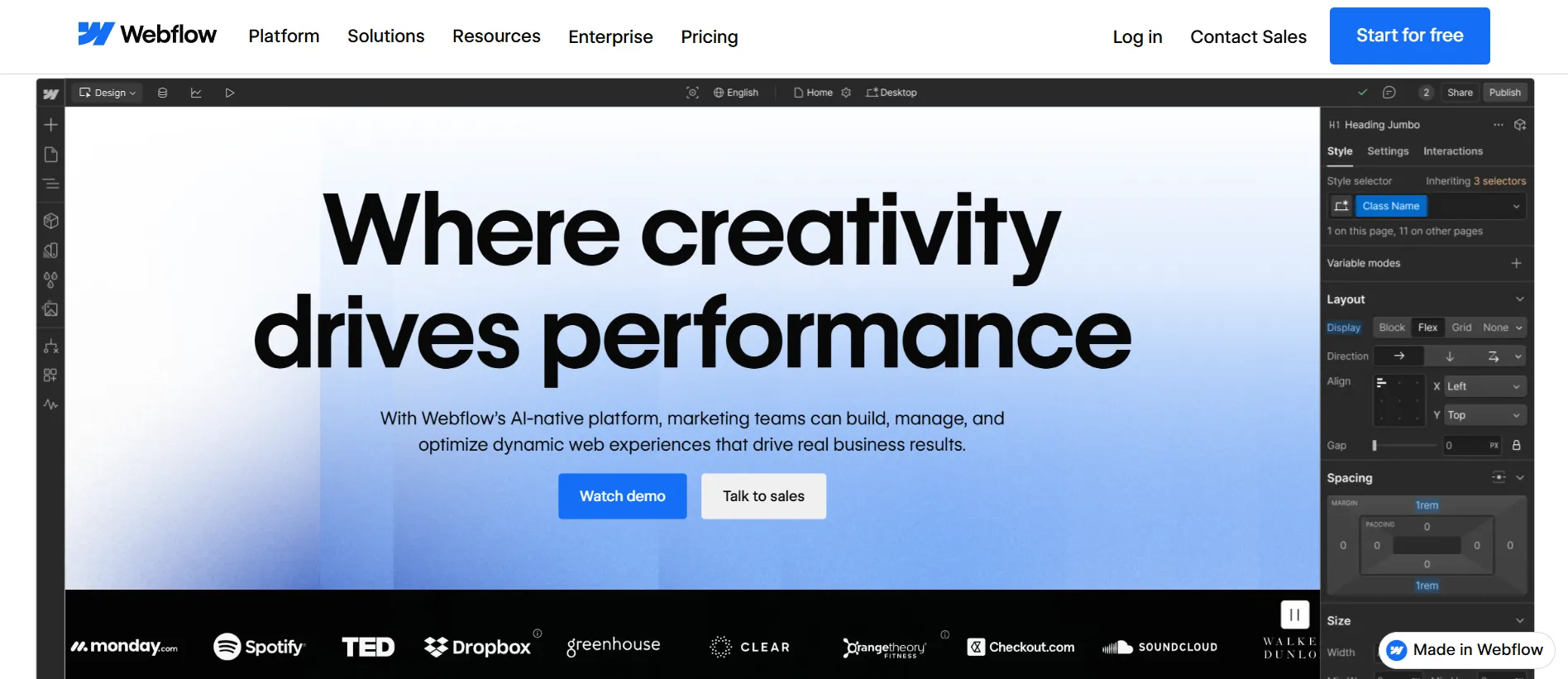
Key eCommerce features that Webflow offers:
- CMS integration for dynamic content and product management
- Clean HTML/CSS export and production-ready code
- Fully customizable cart and checkout experience
- Visual canvas for building fully custom pages
Pros | Cons |
- Unmatched design freedom, allowing users to build any layout or animation without theme constraints - CMS-driven, ideal for content-rich stores or custom product pages - Custom checkout and cart styling - Clean code output, great for SEO and performance optimization | - Not built for large catalogs or complex inventory needs - Support fewer payment options - Steeper learning curve, requiring some understanding of design principles and Webflow's logic |
Curious if Webflow fits your business? Read our detailed Webflow review and Webflow vs Shopify comparison to see how it performs.
How To Choose The Right Shopify Alternative
When it comes to choosing the right alternative among Shopify competitors, there are several factors to consider.
1. Ease of use
Do you want a platform that is easier to navigate and manage than Shopify, even if you don't have much technical experience? Look for platforms that offer intuitive interfaces and drag-and-drop functionality to make the process as simple as possible.
♦ Here, I mean the case of BigCommerce, Wix, and Square Online. Square Online, in particular, provides a user-friendly website builder that allows even those without design or coding knowledge to quickly create visually appealing online stores.
2. Design and customization options
Do you want your online store to stand out and reflect your brand's unique style more than Shopify? Look for platforms that offer a wide range of design templates and customization options. This will allow you to create a store that truly represents your brand.
♦ Here, I mean the case of Squarespace, Wix, WooCommerce, and Shopware. Shopware offers advanced design tools with its “Shopping Worlds” feature, allowing for visually appealing product pages using drag-and-drop tools.
3. eCommerce features
Are you looking for robust eCommerce features? Let's make sure the platform you choose offers the features you need to run your online business successfully.
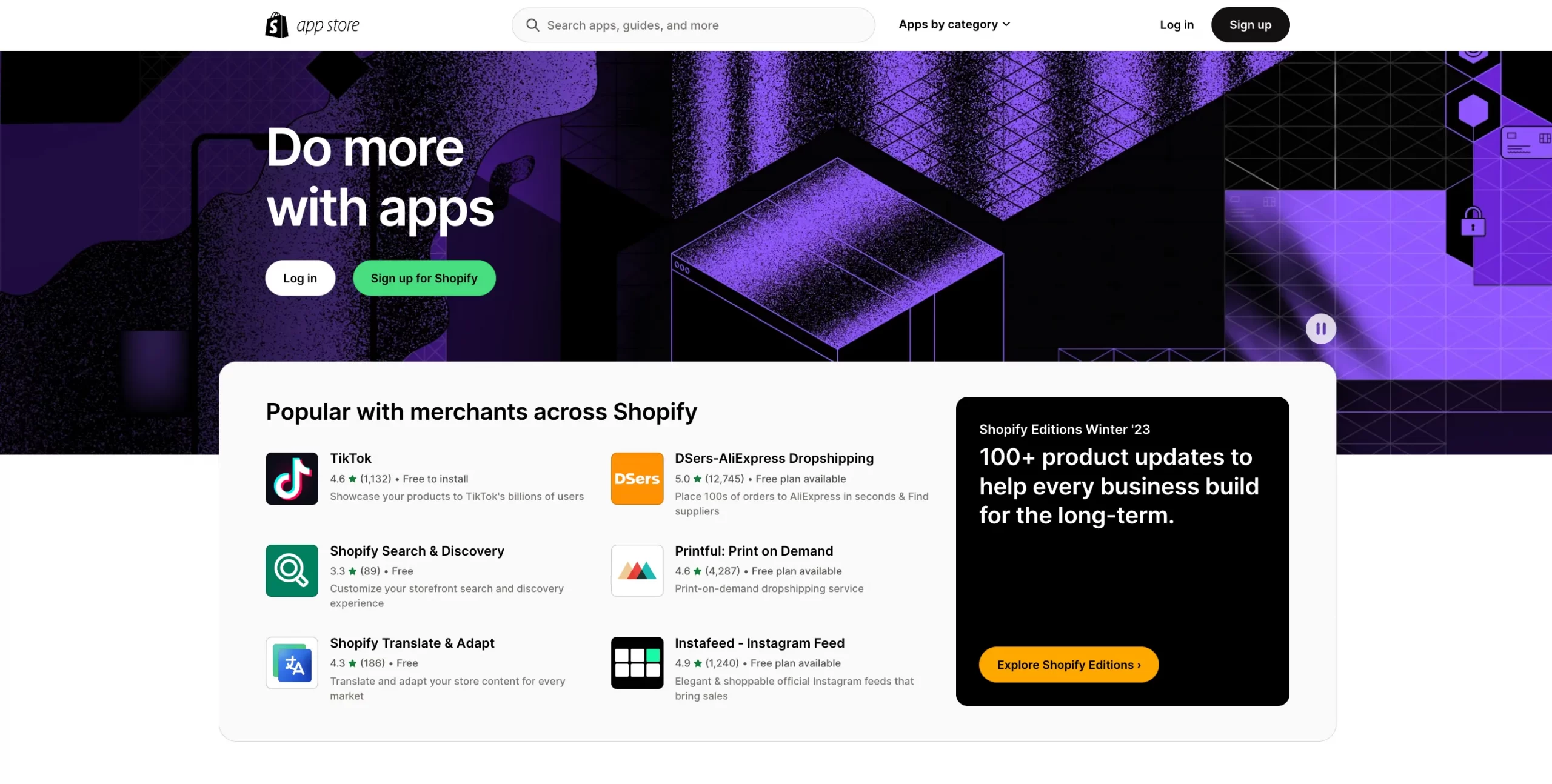
Features such as payment processing, shipping and tax calculators, and customer management tools are essential factors to consider. They will help you streamline your operations and improve the overall customer experience.
♦ Here, I mean the case of WooCommerce, BigCommerce, Magento and Shift4Shop.
4. Apps and integrations
Platforms with a wide range of apps and integrations can help you enhance your store's functionality. This might include apps for email marketing, SEO, analytics, and many others.
♦ Of course, I will recommend WooCommerce in this case due to its extensive library of plugins. Additionally, Shift4Shop offers integrations with popular marketplaces like Amazon and eBay, enhancing its functionality.
See more: Best Shopify Apps You Have to Know
5. Pricing and scalability
Are you finding a platform that offers flexible pricing options so that you can choose a plan that suits your budget and needs? A flexible pricing option means that you can opt for a suitable scalability platform that can help you quickly grow your business as your selling needs evolve.
♦ Here, I will recommend BigCommerce, WooCommerce, Shift4Shop and Magento.
❇️ My final recommendation for you is that you should consider all these above key factors to find the right Shopify alternative to help you run a successful online business. Since there are no one-size-fits-all options, take the time to evaluate your needs and choose the platform that aligns best with your business goals.
See more:
- Detail Shopify Tutorial for Beginners
- Shopify Reviews: All You Need To Know About Shopify
Shopify Competitors: FAQs
What is the biggest competitor of Shopify?
The biggest competitors of Shopify include BigCommerce, WooCommerce, and Magento for their scalability and advanced features, while Wix and Squarespace are popular for ease of use and design flexibility.
Is anything better than Shopify?
Yes, depending on your needs. BigCommerce offers more built-in features for scaling businesses. WooCommerce provides greater customization and flexibility. Shift4Shop is more cost-effective with its free plan for U.S. merchants processing $1,000/month.
Which platform is cheaper than Shopify?
Platforms like Wix, Shift4Shop, and Square Online are generally cheaper, offering free or lower-cost plans compared to Shopify's pricing tiers.
What are the downfalls with Shopify?
Shopify's main drawbacks include:
- High costs due to subscription fees, transaction fees, and paid apps.
- Limited design customization without coding knowledge.
- Dependence on third-party apps for advanced features.
- Basic blogging capabilities compared to platforms like WordPress.
Is Shopify the biggest eCommerce platform?
Shopify is one of the largest eCommerce platforms globally, serving over 5 million online businesses in over 175 countries.
However, other platforms and marketplaces, such as WooCommerce, Magento, and Amazon, have a large market share. Despite this, Shopify has a solid reputation for its ease of use, reliability, and vast array of features, which make it a popular choice for many businesses.
Final Thoughts
While Shopify is a popular and powerful eCommerce platform, there are several other great options out there for businesses of all sizes. Each alternative has unique features and advantages that might be a better fit for certain businesses. You can decide which platform suits your needs best by carefully considering essential factors such as pricing and eCommerce features.
If you need more information on eCommerce platforms, make sure to check out the LitExtension blog for helpful tips and tricks. Or join our dynamic eCommerce Community today and get the assistance you need from thousands of store owners worldwide!
